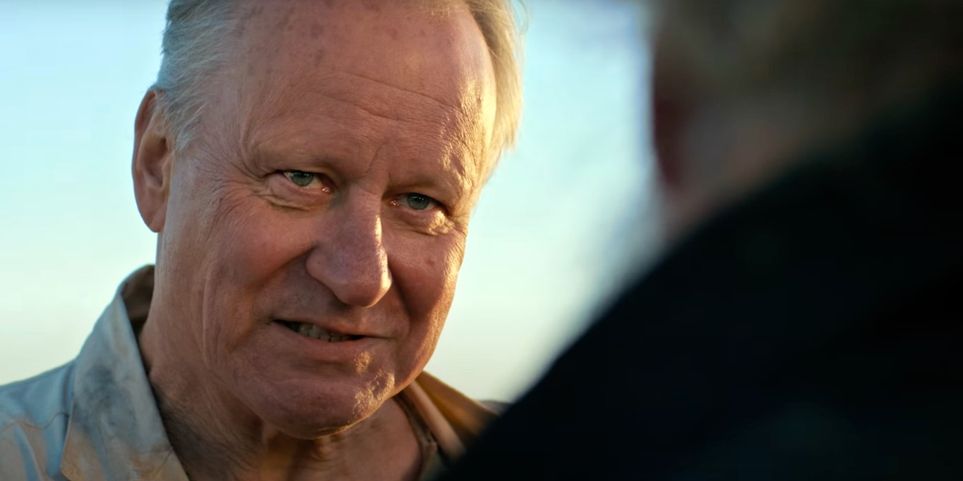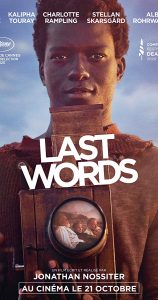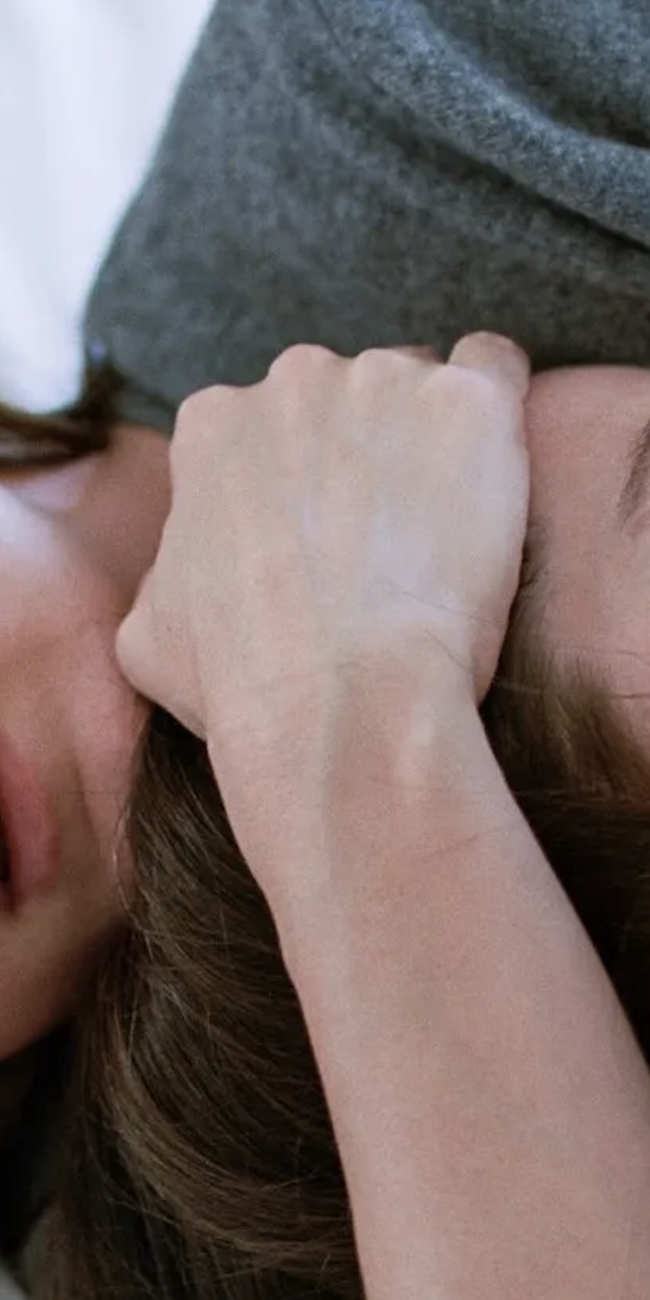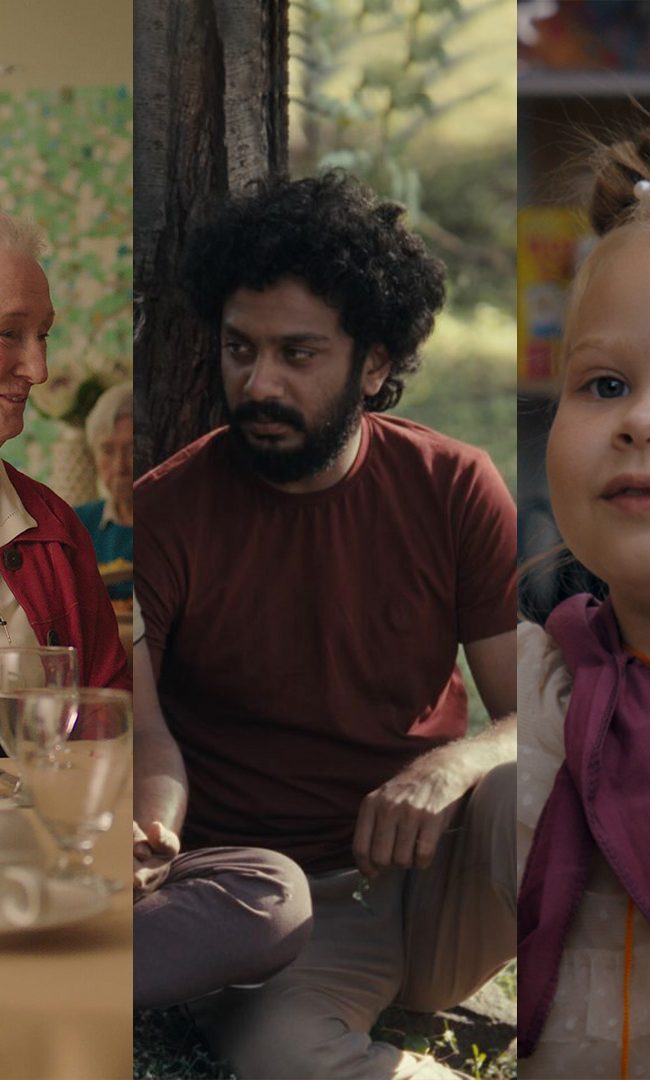A Conversation with Stellan Skarsgård (LAST WORDS)

Stellan Skarsgård has been an actor for over 50 years. Most of his early roles were on the stage or in television programs in Sweden. Skarsgård, now 70 years old, has worked with great auteurs such as Denis Villeneuve, David Fincher, and Lars Von Trier in the past decade. He also ventured into the Marvel Cinematic Universe playing Dr. Erik Selvig in Thor and The Avengers. Skarsgård’s latest film Last Words, written and directed by Jonathan Nossiter, places him in a post-apocalyptic world in which humans can no longer reproduce. Its emphasis on the ideas of legacy and film preservation separates this film from dozens of other post-apocalyptic films focused on the end of the world. Instead of seeking survival and safety, the characters make a film using the last film stock in the world. My interview with Mr. Skarsgård below was edited for length and clarity.
Hammer to Nail: What was it about this project that attracted you? Was it the uniqueness, the director, or the character? How did the project find you?
Stellan Skarsgård: Jonathan Nossiter and I worked together many years ago on a film called Signs and Wonders that he did in Greece. Charlotte Rampling was in that one as well. We have stayed in touch over the years and I have followed what he has been doing. We had been talking and meeting now and then, so he started sending me pages when he started writing it. It is an interesting film, you get a little worried when you get a post-apocalyptic script because I get like five or six a year and usually it’s a genre that is worn thin. But, there was something else in his script that made it interesting. Also, I not only wanted to work with him, I wanted to work with Charlotte again and I wanted to work with Nick Nolte who I have never worked with. He is a fantastic force of nature to be around. There were a lot of things that made it an attractive project.
HtN: What was it like working with someone like Nick Nolte, not just any Nick Nolte, an unhinged and bearded Nick Nolte?
SS: As I said, he is a force of nature. He is a brilliant actor with an enormous presence. When you work with actors like that things happen on the set that you could not expect. There is always life. It was great.
HtN: I was wondering about the [actor who played the] main character in the film Kalipha Touray. He has not been in any films prior to this one. Did you give him any advice? What is it like to work with an inexperienced actor?
SS: He was just off a refugee boat in the Mediterranean. He was in a refugee camp. Jonathan found him and started working with him. I have worked a lot with amateurs before. If they have the right role they can be fantastic, sometimes even better than a trained actor. When you can see an actor working, I find that very sad. All they can produce is real life and he had a lot of it in him. He not only has a beautiful face but he has a beautiful presence as well. I did not give him any advice.
HtN: In one scene when Touray is filming you delivering your life story there is a nice subtlety to your performance. Right before the camera cuts to the next scene the face you make is as if everything you had said was a lie. The character you play in this film toes the line of good and bad. What kinds of preparation do you do for a character like this one where you have to appear good but ultimately be a villain.
SS: Well, I don’t think he was a villain. He does some horrible things towards the end, but that is out of compassion. He does it to spare those people from the horror of being the last people on earth. As you see, he does not finish the job. He is dying himself and realizes what he is doing is horrible. It’s an act of mercy. He is never a bad character however, he is torn. He is a doctor, his work is to save lives. He is in a situation where that is impossible. Lives are being taken away constantly in front of his eyes.
HtN: It is an interesting moral dilemma. Do you prefer to work on a big set like Dune or something more intimate like this project?
SS: I constantly work on both. I go between the small films and the big films. Usually, on a smaller film, the director can make it more personal because the budget is lower and there are no bankers sitting on their shoulders counting money and telling them what to do. “Please do something we have seen before because otherwise, we get nervous.” It is artistically, at least from the director’s point of view, and sometimes from the actor’s point of view, more interesting, but I really enjoy working on the big ones. It is a fantastic machine being in a Hollywood movie. It is usually fun to be there, at least I have had fun on all the big ones I’ve done. It is much more comfortable, you have a big trailer etc. for this film, you did not have a trailer, you felt very cold very often but you had fantastic food and fantastic wine because Jonathan is into food and is also a Sommelier. The lunches were better than most big productions.
artistically, at least from the director’s point of view, and sometimes from the actor’s point of view, more interesting, but I really enjoy working on the big ones. It is a fantastic machine being in a Hollywood movie. It is usually fun to be there, at least I have had fun on all the big ones I’ve done. It is much more comfortable, you have a big trailer etc. for this film, you did not have a trailer, you felt very cold very often but you had fantastic food and fantastic wine because Jonathan is into food and is also a Sommelier. The lunches were better than most big productions.
HtN: What is the mood on a set like this? Even though the film is dealing with serious and dark topics, especially towards the end, It seems like you guys are having fun making this film because you all love cinema so much. I also knew Jonathan was a trained sommelier so I figured he brought some good wine to the set.
SS: Yeah, well he did. He always brought wine for lunch for everybody. It was always very good wine. Of course, you could only have a glass of it because otherwise, you would ruin the afternoon. But then you could meet again in the evening and finish the bottle.
HtN: At the core of this film is the idea of preservation of film. What are your thoughts on digital versus celluloid? Do you prefer one?
SS: I have asked that question to two directors. Lars Von Trier and David Fincher. They both shoot digital now like everybody does. Lars Von Trier said, “there is nothing that the film stock can do to the image that I cannot fix digitally.” It is a different process shooting it because when you shoot on film you have to make the decisions when you are shooting. When you work digitally you can make the decisions later. It is a bit like writing on a typewriter versus writing on a computer or even writing longhand versus a computer. It is harder because you have to think about what you are doing before you do it. Fincher said “There is something special about celluloid because it is a living material. It has its own life. But, there are probably only ten people in the world who can manage it.”
HtN: Or would even be given the stocks.
SS: Yeah. When you are shooting it, as an actor, it is fantastic with the digital revolution. You don’t have to wait ten minutes when they are reloading. You can tell them “let’s do three takes in a row.” Then you shoot and new things happen. There is much more freedom in that sense.
HtN: You have obviously had a very long and successful career playing a variety of roles, starting in Swedish television in your teens to now, what do you think your defining characteristic is as an actor?
SS: I’m on time. (laughter). I don’t know, I really enjoy being on set and I think that joy to some extent can be contagious. Usually, when I am in a film, I contribute to a nice atmosphere on the set where people feel safe, where people feel they can make mistakes, where people can be silly and say whatever they want and nobody will fuck with them for that. The more freedom you can get, the better the result will be. I cannot discuss my qualities as an actor because I am never at peace with what I do anyway.
HtN: Just like Lars.
SS: haha Yup.
HtN: You were a Producer for the 2014 film In Order of Disappearance. You also helped write Hans Alfredson’s Jim and the Pirates. Would you consider producing or writing again for a film?
SS: No. I mean sometimes I will suggest rewrites for lines, or sometimes I will get a producer’s or screenwriter’s credit because I have been contributing to the financing of the movie or been consulting on the script but I don’t want to be a producer. I don’t have time for that. People will ask, “Don’t you want to direct?” I will say, “So you want me to make one film every five years instead of five films in one year?” I like to keep on moving.
HtN: What is a film that every aspiring actor should watch?
SS: They should watch actors. They should go back and watch the American films of the 70s that were character-driven. I just saw Jane Campion’s new film [Power of the Dog]. They can watch Kirsten Dunst in that. Kirsten Dunst, what she is doing there is absolutely amazing. She is the human core in that film. To me, being a good actor on film means no matter how skilled you are, you should be as good as an amateur.
HtN: That performance reminded me a lot of her in Melancholia.
SS: Yeah, me too. She was amazing in that. It was very strange that she did not get an Oscar for that.
HtN: So, do you feel worried about the future of cinema in the Covid era? It is ambitious films like this one, Last Words, that make me think those who say “cinema is dead” are silly.
SS: Cinema is not dead. People will keep on doing cinema. The problem is, if you talk about cinematic language, it requires the big screen because it is very different from television. In television usually, all of the information is in the dialogue. You can cook at the same time and still know what’s going on. In cinema, almost everything is in the image. It is in the looks that people give each other. It is what they look like between the lines that is important. This requires a different kind of attention from the audience. You see it in the cinema. Like Dune, which I just did. If I watch it on my phone, it’s not that much, but if you see it on a big screen, it’s a totally different experience. Another problem is that it’s hard to find cinemas that show films other than the big blockbusters. It used to be that every cinema had a different owner. If the owner liked the film he would show it, eventually, the film would grow. That is not possible anymore and that’s sad.
HtN: Are there any actors or filmmakers you want to work with that you have not?
SS: Oh yeah, there are tons. Some of them have not done their first film yet. I’m looking towards the future with hope.
HtN: Do you have a favorite genre to work in? Is it different from your favorite to watch?
SS: No, I had a great time doing Mama Mia, and I had a great time doing Last Words. It’s not the genre, it’s more about the people you work with. I am not that concerned with the attention the film gets afterward, I am more concerned with having fun on the set and enjoying myself because life is too short and I really have fun on the set
HtN: Do you have any funny stories from the set? The scene where you and Nick Nolte are shaking hands was hilarious to me when you guys both have that laugh.
SS: Yeah, that was not planned, it just grew to that. Back to Nick, things start to happen when you meet him on the set in front of the camera. Brilliant things come out of that.
HtN: What are you best at cooking?
SS: Lately I have been doing a lot of Szechuan cooking. It is fantastic, they have so much fermented stuff. It gives a great umami flavor to everything. I have done a lot of Chinese lately, but otherwise, I cook from all over the world. I also finally learned how to cook suckling pig very well which is something beautiful. A lot of people may find that offensive, but it’s good food.
HtN: Are there any upcoming projects you have that you are looking forward to?
SS: Well, the next one I have is Dune 2. After that I will do the second season of a new Star Wars series called Andor. I did the first season last year, but it’s not out yet.
– Jack Schenker (@YUNGOCUPOTIS)











